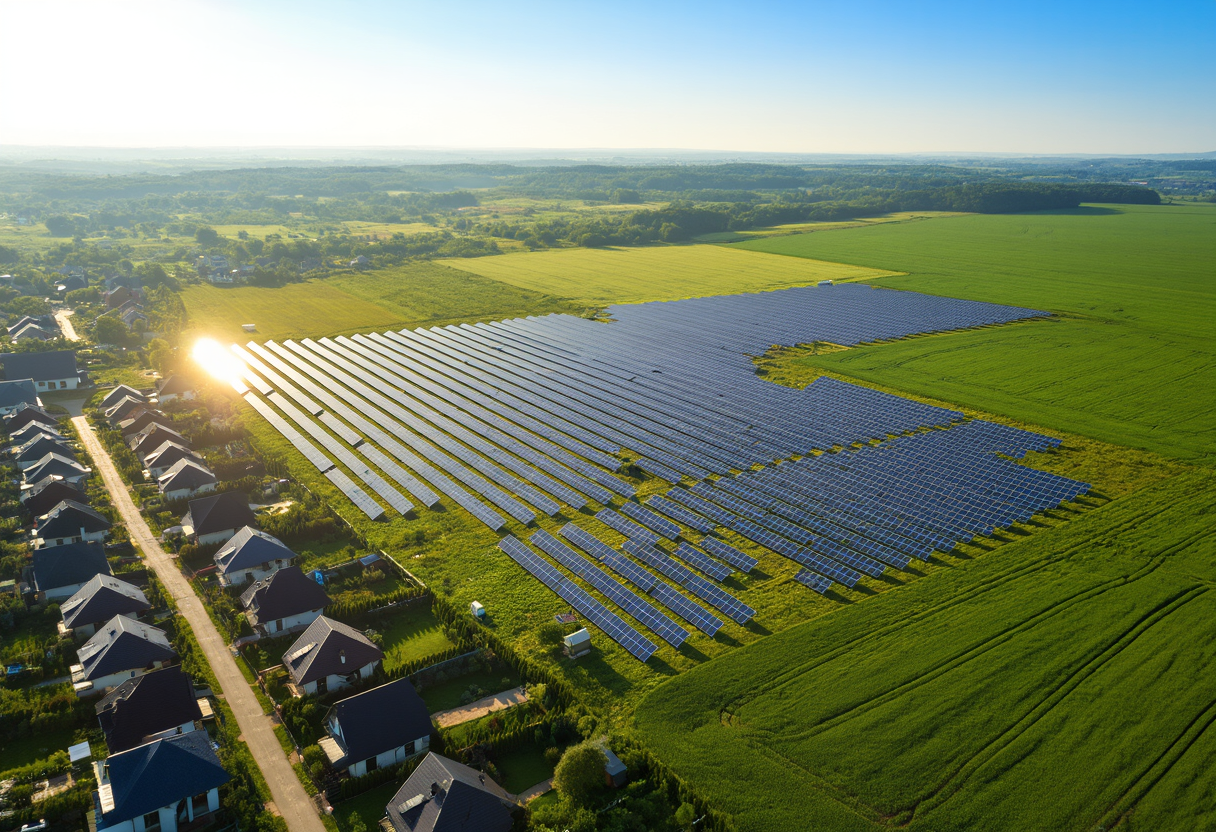The Future is Bright: How Solar Panels are Revolutionizing Energy Consumption
As we look towards a sustainable future, solar panels are emerging as a cornerstone of energy transformation. They not only reduce electricity bills but also contribute significantly to environmental preservation. This article delves into the multifaceted benefits of solar panels, their economic implications, and the societal shifts in energy consumption patterns that they catalyze. Discover how solar technology can reshape our approach to energy.
The Economic Benefits of Solar Panels
The adoption of solar panels presents substantial economic advantages for homeowners and businesses alike. Investing in solar technology not only lowers electricity bills but also enhances property value. By installing solar panels, individuals can harness renewable energy and reduce reliance on traditional power grids, leading to significant cost savings over time. Furthermore, solar panels contribute to job creation in the green energy sector, stimulating local economies. Statistically, regions with a high penetration of solar energy report lower unemployment rates, indicating the economic ripple effects of this renewable source. Moreover, government incentives and tax credits encourage the installation of solar panels, further improving their financial viability. Overall, the economic landscape is shifting dramatically thanks to the integration of solar panels into everyday energy consumption.
Environmental Impact of Solar Panels
The environmental benefits of solar panels are undeniable and multifaceted. By generating energy from the sun, solar panels significantly reduce greenhouse gas emissions, contributing to cleaner air and a healthier planet. They play a crucial role in combating climate change by lowering the carbon footprint associated with energy production. Additionally, solar panels require minimal water for operation, making them a more sustainable option compared to traditional energy sources like coal and natural gas, which consume vast amounts of water during extraction and processing. Furthermore, the lifecycle of solar panels can be optimized for reduced waste through recycling initiatives, aligning perfectly with global goals towards sustainability. As more individuals and communities adopt solar technology, the cumulative environmental benefits continue to increase, illustrating the transformative power of solar panels in mitigating ecological degradation.
Solar Panels and Energy Independence
In the quest for energy independence, solar panels provide a viable solution. By utilizing solar energy, users can become less reliant on external energy supplies, which are often subject to geopolitical tensions and price fluctuations. Solar panels empower individuals by giving them control over their energy production. This self-sufficiency not only enhances resilience against power outages but also fosters local energy communities. It is noteworthy that areas with widespread solar panel adoption have demonstrated a marked decrease in energy poverty, showcasing the socio-economic benefits of renewable energy. The expansion of solar infrastructure also encourages innovation in energy storage technologies, making energy independence more attainable. Therefore, solar panels don't just transform energy consumption; they revolutionize societal structures by promoting autonomy and resilience.
The Role of Technology in Solar Panel Efficiency
Advancements in technology have been pivotal for the evolution of solar panels. Innovations in photovoltaic materials have developed highly efficient solar cells that can convert more sunlight into usable energy. This efficiency is critical as it directly influences the economic feasibility of solar installations. Emerging technologies, such as perovskite solar cells and bifacial panels, are on the cutting edge, pushing the boundaries of what solar panels can achieve. Furthermore, improved battery storage technology allows consumers to maximize their solar efficiency by storing excess energy for use during peak demand or cloudy days. The integration of smart grid technology with solar energy systems enhances their effectiveness and reliability. Thus, ongoing technological advancements ensure that solar panels remain at the forefront of sustainable energy solutions.
Challenges Facing Solar Panel Adoption
Despite their numerous benefits, solar panels face challenges that can hinder widespread adoption. Initial installation costs can be prohibitively high for many households, although these are gradually decreasing due to advances in manufacturing and economies of scale. In addition, regulatory hurdles and varying incentive structures across different states or countries can create confusion for potential users. Public perception also plays a vital role; misinformation about the efficacy and lifespan of solar panels can discourage adoption. Moreover, the intermittent nature of solar energy raises concerns about reliability. It is essential for stakeholders to address these challenges through education, policy reform, and enhanced installation practices. If these obstacles are overcome, the potential for solar panels to revolutionize energy consumption is immense.
The Future of Solar Panels: Trends and Predictions
Looking ahead, the future of solar panels is bright, with several trends indicating robust growth in the sector. As global awareness of climate change increases, the demand for clean energy solutions will continue to rise. The adoption of residential solar panels is set to expand, supported by declining costs and improved financing options. Additionally, the rise in electric vehicles (EVs) will propel solar's growth, allowing EV users to recharge sustainably at home. Collaborative community solar initiatives will make solar technology accessible to those who cannot install panels on their properties. The fusion of artificial intelligence with solar technology will optimize energy management systems, enhancing efficiency. In summary, solar panels are more than just a growing trend; they represent a paradigm shift towards cleaner, more sustainable energy consumption.
